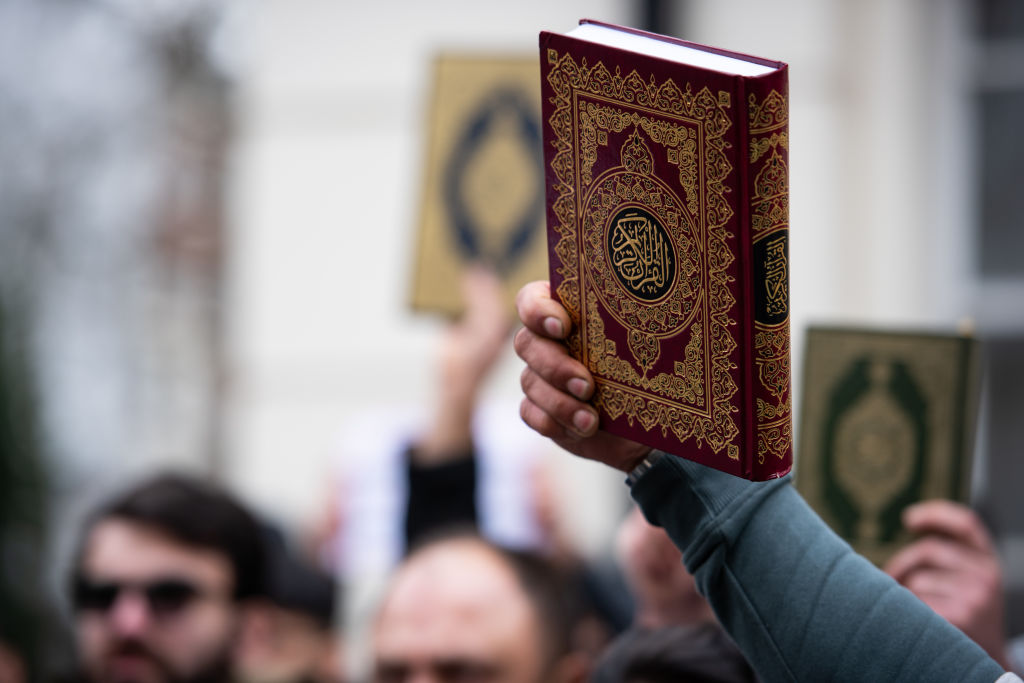Just as Germany, along with the rest of Europe, begins to process what Donald Trump’s return to the White House will mean, more instability is heading its way – this time domestic. This evening, German chancellor Olaf Scholz fired the finance minister and FDP leader Christian Lindner, kicking the FDP party out of government and bringing Berlin’s traffic-light coalition crashing down. The result: Germany is probably off to the polls.
Speaking at a hastily called press conference in the Bundestag following Lindner’s dismissal, Scholz announced that that he would be holding a vote of confidence in himself on 15 January. If that goes badly, the federal election – originally planned for 28 September – will be brought forward to March.
The federal election – originally planned for 28 September – will be brought forward to March
Earlier this evening, Scholz met with Lindner and Robert Habeck, the leader of their Green party coalition partner, in a last-ditch attempt to hammer out an agreement on the country’s budget for next year. Lindner’s dismissal marks the culmination of nearly a week of fevered speculation on the traffic-light coalition’s future as Scholz and his cabinet struggled to come to an agreement. Scholz had spent the past five days holding a number of talks with the FDP leader and Habeck. While a compromise had looked close before last Thursday, these crisis talks were prompted by an economic and budget policy paper Lindner sent the pair, reportedly outlining specific conditions to secure the party’s continued participation in the coalition.
At the press conference tonight, Scholz’s anger was palpable. Slamming Lindner as ‘irresponsible’ and ‘petty’, he said: ‘I do not want to subject our country to such behaviour. I would have liked to have spared you that.’ He accused his former coalition partner of regularly ‘blocking laws without regard to the matter at hand’ and ‘breaking trust’.
Interestingly, Scholz acknowledged the terrible timing of his government’s breakdown, calling Lindner’s decision to force his hand on the day of the US election incomprehensible. He accused the FDP leader of failing to grasp the seriousness of the challenges facing Germany in the coming years and the large amount of money needed to meet them. He would not, he says, agree to Lindner’s demands to make Germans choose between paying for ‘either security or cohesion. Either Germany’s future or the security of Ukraine’.
With the federal election bookmarked for next September and the FDP floundering at 4 per cent in the polls, Lindner’s angling for special conditions with the coalition was widely seen as an attempted strategy to pick a fight with the SPD and boost his party’s poll numbers in the process. Either Scholz and Habeck would concede to his demands for an ‘economic turnaround’ and give Lindner the win, the FDP’s logic went, or else the party’s leader could flounce out of the coalition, forcing a collapse that they could capitalise on in any future election.
Reports in the German newspaper Bild suggest that Lindner had indeed been planning a dramatic exit from the coalition at tonight’s meeting. The FDP leader had spent much of the past five days enjoying the rampant speculation, teasing reporters asking about the coalition’s future with vague responses such as ‘we will have to see what the SPD proposes’. Scholz taking the wind out of his sails by firing him may not have been what Lindner had in mind though.
What comes next remains far from clear. With the discussions on the budget breaking down and the FDP out of the coalition, Scholz has no parliamentary majority with which to pass a new economic programme. As such, Germany has no agreed economic direction for next year. While this is most likely to be a problem for whichever administration comes in next, in the interim period, the Germany will be entering 2025’s choppy waters economically unmoored.
More pressing for Scholz, as he himself recognises, the end of the traffic-light coalition is swiftly morphing into a larger crisis: one of his own leadership. At the meeting tonight, Lindner is reported to have said the traffic-light coalition had run out of road and that early elections should be called in January. Scholz apparently refused to entertain the suggestion; he will be peeved that by firing Lindner now, he will be forced to hold them early anyway.
Just under three years since he took office, Olaf Scholz’s time as Chancellor is coming to a sticky, premature end. The SPD is polling at a meagre 16 per cent, well below the conservative CDU and two points below the far-right AFD. It is highly unlikely Scholz will emerge from his confidence vote in January with his authority intact. Germany is in for a turbulent few months.








Comments